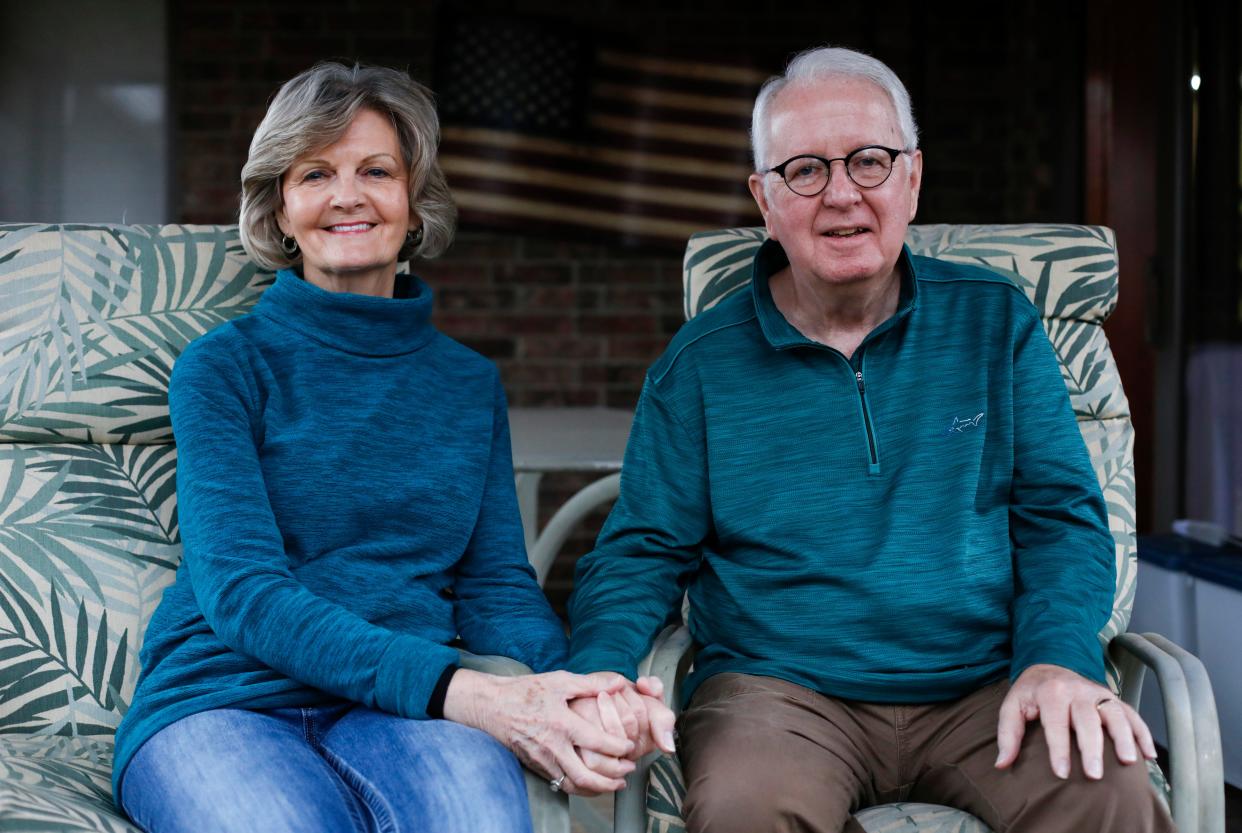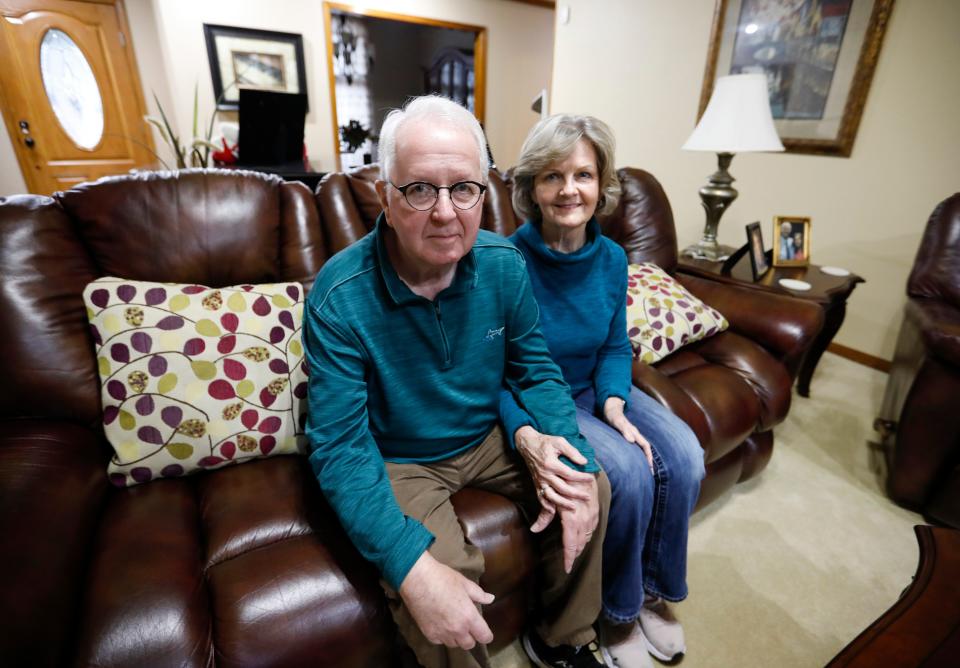Music and relationships ease Springfield resident's journey with dementia

Throughout Ron Brammer's life, music has always been present.
It was there when he met his wife during band class in his senior year of high school. It was there during his career as a high school band director, and then when he took a job in fundraising. Music was there when, instead of retiring, Ron directed the Missouri State University Community Band for 20 years.
“Music weaved through all of (my life), because that’s just what (our family does) here,” Ron said. He explained that instrument cases still fill his office, although he can no longer play.
Lewy body dementia has taken away Ron's ability to play music. But he still listens to music every day, says his wife, Linda.
“If I could play, I would. I’d play badly just to play. But you can’t do that, either," Ron said.
Linda is another constant through Ron's life — married for 52 years and together for 56: "We've been blessed." The couple's two adult children were musically inclined, as well. Throughout his life, he helped his students cultivate a love and appreciation for music, as well. Music, and the relationships Ron formed through it, has bolstered him as his condition has worsened.
"Music is the language of God, is what I say. It is a remarkable thing," Ron said.
A long road to diagnosis

Ron first experienced symptoms in summer 2017, and it wasn't until March 2018 that he got his first diagnosis: "Some kind of dementia, probably Parkinson's" due to the tremors.
"It’s changed, and as it’s progressed they’ve been able to narrow it down to Lewy body dementia. It went from Parkinson’s to Alzheimer’s back to Parkinson's. It’s probably been a couple years now that we’ve settled on Lewy body dementia," Linda said, because of the hallucinations associated with Lewy body dementia.
Lewy body dementia is the second most common type of progressive dementia after Alzheimer's Disease, according to the Mayo Clinic. Abnormal protein deposits in nerve cells disrupt thinking, memory and movement. Early stages of the disease can often be mistaken for other disorders. Symptoms of Lewy body dementia start out slowly and worsen with time.
More:Springfield couple's advice for caregivers of those with dementia: Slow down, be patient
While Linda wishes they could have known the diagnosis sooner, she and Ron agree that the important thing now is what they do with the time they have.
“You don’t want to spend a lot of time sitting around looking at (the diagnosis). No matter what the (name of it is), the result is going to be the same. It is what it is,” Ron said.
The average time from diagnosis until death is five to eight years, according to the National Institutes of Medicine, and the Brammers feel blessed that they've had as long as they have.
An opportunity to reconnect
It's hard to consider a progressive illness a blessing, but Ron and Linda seem to have found the few bright spots in it.
“He is now much more intentional about seeing people and telling them how much they meant to him in his life," Linda said. "He’s got the opportunity to do that, where a lot of people do not.”
That desire to connect with people in a meaningful way while he still can has created opportunities for Ron to revisit the relationships in his life because of music. At a certain point, Ron wasn't able to write any more, and was disheartened that he wouldn't be able to write notes to the important people in his life. But in March 2022, Ron and Linda traveled to Arkansas for an in-person reunion with Ron's former high school students — something that turned out to be better than any note.
More:As Missourians age, dementia is expected to increase. Is the state set up to handle it?
The Brammers spent a whole day reminiscing with about 120 of his former students. Though the students are in their 60s now, they're "always kids to us," Linda said.
“What an opportunity. … All those kids are there and coming up (to me) and I get to say thank you. It makes me want to cry,” Ron said, tearing up. “I got to say thank you for who they were. And when I look back on that, I’ll never forget it. It shows just the human feelings we have for each other and how important (they are)."
They had a similar get-together for the MSU Community Band after Ron stepped down as its director in 2018. He recalled being in awe of the “impact you’ve had on many lives and the impact they’ve had on you.”
“You don’t realize how much of impact something you had did on someone until they tell you,” Ron said.
Susan Szuch is the health and public policy reporter for the Springfield News-Leader. Follow her on Twitter @szuchsm. Story idea? Email her at sszuch@gannett.com.
This article originally appeared on Springfield News-Leader: Music, relationships key to Springfield resident navigating dementia

